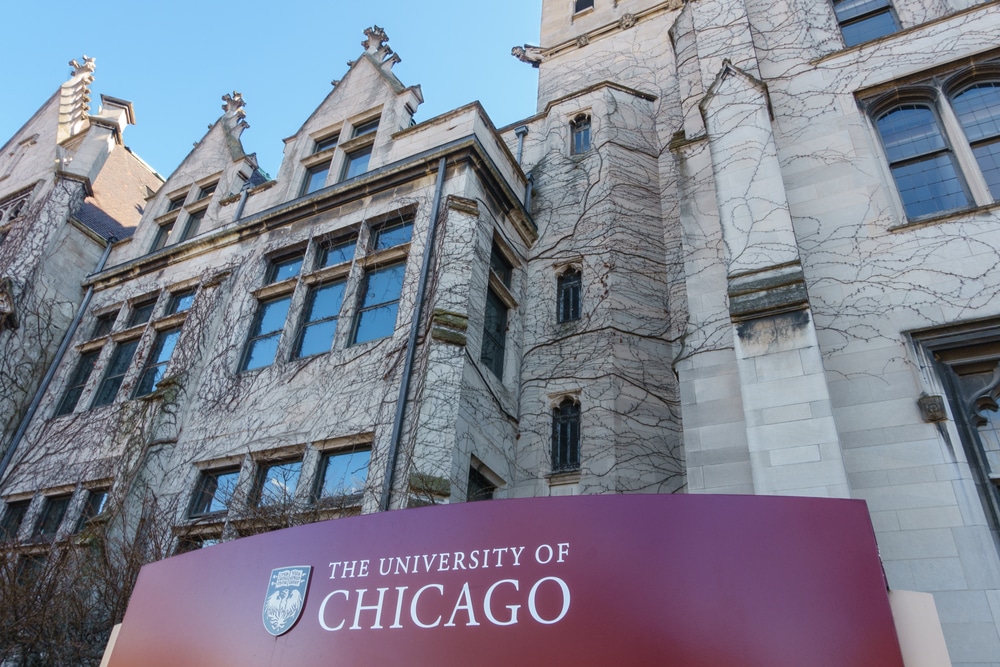A Glance at UChicago Computer Science Program
The University of Chicago, known colloquially as UChicago, is one of the top educational institutions in the United States and worldwide, with a rich and storied history that starts from back to its founding in 1890. Endowed by John D. Rockefeller, the university has long been revered for its commitment to rigorous academic inquiry and open, interdisciplinary dialogue. One of the top programs offered at this university is the UChicago Computer Science Program.
The Department of Computer Science at UChicago is an integral part of this esteemed institution, founded in the 1980s and steadily rising in prominence since then. The department, with its dedicated faculty and cutting-edge facilities, is committed to equipping students with the foundational knowledge and advanced skills they need to navigate and shape the rapidly evolving field of computer science.
The department offers undergraduate, graduate, and doctoral programs, with a comprehensive curriculum that spans a broad range of subjects within computer science, including theoretical computer science, artificial intelligence, data science, human-computer interaction, software engineering, and cybersecurity, to name just a few.
UChicago Computer Science program was recognized as one of the best Computer Science program in the country and the world, consistently ranking high in various national and international rankings. The program’s prominence is a testament to UChicago’s commitment to academic excellence and innovation, producing graduates who are well-equipped to tackle complex challenges in technology and contribute to advancements in the field.
UChicago Admission Process for Computer Science
Undergraduate admission requirements
Admission to the University of Chicago’s undergraduate program, including Computer Science, is highly selective and holistic, considering various aspects of an applicant’s profile. Academic excellence is paramount, emphasizing the rigor of secondary school records, GPA, and standardized test scores such as the SAT or ACT.
However, UChicago is also known for its unique, thought-provoking essay questions that allow applicants to showcase their intellectual curiosity, creativity, and critical thinking skills. Extracurricular activities, leadership roles, and recommendation letters are also crucial components of the application.
For international students, proof of English proficiency may also be required, typically through tests like the TOEFL or IELTS. As the process is competitive, prospective students are encouraged to display their passion for learning, commitment to their communities, and potential to thrive in UChicago’s intellectually stimulating environment.
Graduate admission requirements
The graduate admission process at the University of Chicago’s Department of Computer Science is competitive and comprehensive, looking beyond just academic metrics to evaluate applicants. Candidates must hold a bachelor’s degree from an accredited institution with a strong background in computer science or a related field.
A strong academic record, including GPA and course rigor, is essential. Applicants are also required to submit GRE scores, though due to COVID-19, this requirement may be waived or adjusted; please check the latest information from the university. Additionally, a statement of purpose is needed, outlining the applicant’s academic goals, research interests, and reasons for choosing UChicago. Three letters of recommendation from various individuals who can speak to the applicant’s academic or professional abilities are also necessary.
International applicants must demonstrate English language proficiency through TOEFL or IELTS scores. Prior research experience, while not strictly required, can significantly strengthen an application as evidence of the applicant’s potential to contribute to the department’s intellectual community.
Tips and strategies for a successful application
Applying to a prestigious institution like the University of Chicago requires careful planning and thoughtful preparation, whether for an undergraduate or graduate program. Begin by thoroughly researching the program you’re interested in; understand its strengths, focus areas, and what it seeks in its students.
For your application, focus on crafting a compelling narrative highlighting your academic achievements, passion for computer science, and potential to contribute to the UChicago community. Your essays and statement of purpose are crucial – use them to show your intellectual curiosity, commitment to your chosen field, and unique perspective.
When writing about your academic or extracurricular experiences, highlight your activities but also what you learned and how it shaped you. Recommendations should come from individuals who know you well and can provide detailed insights into your abilities and potential. If you’re applying for a graduate program, having research experience and clearly articulating your research interests can significantly strengthen your application.
Finally, ensure that your application is error-free and submitted before the deadline. Having someone else review your application for clarity, coherence, and correctness may be helpful.
UChicago Core Curriculum for Computer Science
Overview of the Undergraduate Computer Science Curriculum
The undergraduate UChicago Computer Science curriculum is designed to provide a good and solid foundation in the field while allowing students to explore their interests. The UChicago core curriculum includes courses in areas like algorithms, computer systems, programming languages, discrete mathematics, and machine learning.
These courses aim to instill a deep understanding of the important principles and practices of computer science from both theoretical and practical perspectives. In addition to the core courses, UChicago students can choose from various electives to further deepen their knowledge or explore new areas.
These electives cover various topics, such as artificial intelligence, data science, cybersecurity, human-computer interaction, and software engineering. The exact course offerings can change from year to year, reflecting the evolving nature of the field and the department’s commitment to staying at the forefront of emerging trends and technologies in computer science.
Overview of the Graduate Computer Science Curriculum
The UChicago Computer Science graduate curriculum is designed to provide computer science students with a comprehensive understanding of advanced computer science concepts and techniques while also offering specialization opportunities. The core curriculum typically includes advanced courses in areas such as algorithms, computer systems, data structures, and programming languages, providing a solid foundation in the discipline’s theoretical and practical aspects.
Depending on the specific program, there may also be requirements for courses in research methodology or teaching. In addition to these core courses, graduate students can choose electives to tailor their education to their professional goals and research interests.
These electives cover a broad range of topics, including artificial intelligence, data science, human-computer interaction, cybersecurity, quantum computing, and machine learning. The diversity and depth of these offerings allow students to gain specialized knowledge in their areas of interest, preparing them for advanced research or professional roles in these fields.
Unique Aspects of UChicago’s Computer Science Curriculum
The University of Chicago’s Computer Science curriculum stands out for its distinctive blend of theoretical depth, practical experience, and interdisciplinary opportunities. One of the unique aspects is its emphasis on rigorous theoretical training, which equips students with a deep understanding of the main foundational principles of computer science.
This theoretical focus is balanced by practical, hands-on experiences in cutting-edge labs and through project-based courses, allowing students to use their knowledge and apply them in real-world contexts. The curriculum also encourages interdisciplinary study, recognizing the increasing role of computer science in a wide range of fields. Students can take courses and conduct various research across different departments, applying computer science to biology, economics, sociology, and more.
Furthermore, UChicago’s curriculum is continually evolving, with new courses being added to reflect the latest trends and technologies in the field, such as artificial intelligence, data science, and quantum computing. This combination of theoretical rigor, practical application, and interdisciplinary exploration makes UChicago’s Computer Science curriculum uniquely well-rounded and dynamic.
Research at UChicago Computer Science
Overview of research areas within the department
The UChicago Computer Science Department is renowned for its diverse and cutting-edge research, spanning a broad range of areas within the field. These research areas reflect the department’s commitment to pushing the boundaries of knowledge in computer science and its applications.
Key research areas include:
- Algorithms and complexity, where researchers explore foundational questions about the nature and limits of computation.
- Artificial intelligence and machine learning, where faculty and students work on developing advanced models and algorithms to enable machines to learn from data and make intelligent decisions.
- Data science, where research focuses on analyzing and interpreting complex datasets to extract valuable insights.
Other areas of research at UChicago include:
- Computer systems, where the focus is on designing and optimizing the hardware and software that power modern computing.
- Human-computer interaction studies how people interact with technology and how to design better interfaces.
- Cybersecurity is where researchers ensure the security and privacy of computer systems and data.
- Computational and systems biology, where computer science is applied to understand complex biological systems.
Notable faculty and their research
The Department of Computer Science at the University of Chicago boasts a roster of renowned faculty members who are prominent leaders in their respective fields. Some notable faculty included Prof. Fred Chong, recognized for his work in quantum computing, a field at the cutting edge of computer science. Prof. Chong’s research aims to design and implement scalable, efficient quantum systems.
Another notable faculty member is Prof. Shan Lu, who focuses on software reliability and efficiency. Her research aims to improve the reliability of complex computer systems and applications by finding, diagnosing, and fixing software bugs. Prof. Michael Franklin, a leading figure in data science and databases, heads the Center for Data and Computing, UChicago’s research institute for data science.
His research addresses the management of large amounts of data and the systems that enable data-driven discovery. These faculty members, among others, contribute to the department’s reputation for groundbreaking research in computer science.
Opportunities for student involvement in Research
At the University of Chicago, there are abundant opportunities for students to get involved in research, reflecting the university’s commitment to fostering a culture of inquiry and innovation. Undergraduates can participate in research projects through various programs like the Research Experiences for Undergraduates (REU) program or work directly with faculty on their research projects.
There are also incredible opportunities for computer science students to pursue their independent research projects under faculty supervision. For graduate students, research is a central part of their education. They can work closely with faculty members, contributing to ongoing projects and initiating their research. Interdisciplinary collaboration is strongly encouraged, with opportunities to work with researchers in other departments or institutions.
Additionally, students can present their work at research symposia and conferences, further enhancing their research skills and professional development. These opportunities provide invaluable experience for students, preparing them for careers in academia, industry, or other research-heavy fields.
Notable research outcomes and projects
The UChicago Computer Science Department has been home to numerous significant research outcomes and projects. For instance, the work led by Prof. Fred Chong in the field of quantum computing has made substantial contributions toward making quantum computers a practical reality, including strategies for error correction and resource optimization.
Another example is Prof. Shan Lu’s research in software reliability, which has led to the development of innovative techniques for detecting, diagnosing, and fixing bugs in complex software systems. These techniques have the great potential to significantly improve the reliability of software applications and systems. In data science, Prof. Michael Franklin’s research has advanced our understanding of data management systems. It has led to development of novel techniques for managing and analyzing large datasets.
These are just some of the few examples of the impactful research of UChicago’s Department of Computer Science. The department’s focus on cutting-edge research continues to push the boundaries of what’s possible in computer science and related fields.
UChicago Campus Facilities and Resources
Description of department facilities and labs
The Department of Computer Science at the University of Chicago is housed in the state-of-the-art John Crerar Library building, a hub for interdisciplinary research in computation and data. The building, renovated and re-opened in 2018, provides ample space for classrooms, research labs, and collaborative work areas.
The UChicago Campus also hosts the Computer Science Instructional Laboratory (CSIL), a dedicated space for computer science students to work on projects and assignments outfitted with modern workstations and software. Research labs in the department are specialized for various areas of study, from data science and artificial intelligence to quantum computing and human-computer interaction.
These labs have the latest technology, facilitating cutting-edge research and giving students hands-on experience with advanced tools and systems. The UChicago Computer Science department also benefits from being part of the larger UChicago tech ecosystem, with close ties to interdisciplinary research centers such as the Center for Data and Computing and the Polsky Center for Entrepreneurship and Innovation.
Libraries and other academic resources
The University of Chicago boasts some of the world’s finest libraries and academic resources. The John Crerar Library, which houses the Department of Computer Science, is also a major science, medicine, and technology library. It offers extensive journals, books, and databases related to computer science and other STEM fields. Another notable resource is the D’Angelo Law Library, which can support interdisciplinary work in areas like cyber law and intellectual property.
The university’s library system provides access to various online resources, including digital databases, e-books, and electronic journals. Beyond libraries, students have access to other academic resources like the Computer Science Instructional Laboratory (CSIL) for hands-on learning, the Center for Data and Computing for interdisciplinary data science research, and the UChicago Careers in Computer Science program, which provides career guidance and resources.
Collaboration opportunities with other departments and institutions
UChicago is well known for its interdisciplinary culture, which extends to the Department of Computer Science, which collaborates extensively with other departments and institutions. For instance, students and faculty often collaborate with researchers in the physical and biological sciences, economics, social sciences, and humanities, applying computational methods to various research problems.
The department also has a strong relationship with Argonne National Laboratory, a U.S. Department of Energy multidisciplinary science and engineering research center, where students and faculty can engage in collaborative research projects. Additionally, the university’s proximity to a thriving tech scene in Chicago offers opportunities for partnerships with tech companies and startups.
The Polsky Center for Entrepreneurship and Innovation also allows students and faculty to translate their research into startups or other forms of societal impact. These collaboration opportunities enhance the learning and research experience at UChicago Computer Science, allowing students to apply computer science in diverse contexts and contribute to advancements in multiple fields.
Now that you have an idea about UChicago, your college admissions into that university should be next on your mind. To ensure that you get into UChicago, you can get help with AdmissionSight. With ten years of experience with college admission experts, AdmissionSight can help you get into UChicago. You can talk to our experts today to get an initial consultation.










































